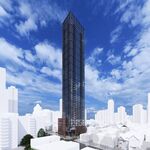ElDee
New Member
I was just pondering about the bubble and trying to understand what it means in the specific context of different types of real estate or buyer classes.
When we talk about the real estate bubbles, crashes and unaffordability, are we as Canadians and Torontonians talking about a broad bubble or potential crash across all price brackets of the real estate market and across all types of buyers?
Let's take a place like Forest Hill for example. Who wouldn't want to own a home there? Do people talk about prices in forest hill being bubbly in nature? Would a broad real estate crash or some sort of government intervention somehow create an environment where the middle class would be able to afford property there?
Or are properties in these types of areas and this class of buyer mostly irrelevant in discussions about bubbles and unaffordability?
For another example in my thought experiment, I recently dropped into the Aquabella show room just to take a peek. As much as I'm personally priced out of the terrace and water facing units, I played along with the sales folks just to see what sort of offerings were available and for how much.
With starting prices starting at 1.7M and up for decently sized 2bd units, I asked myself - what's the general profile of the people who buy these units, if a profile could be applied? Do these buyers worry about bubbles and crashes? is it all relative?
Does a crash or adjustment put these beautiful family sized units within reach of the middle class family? Should it?
How about another angle:
If we imagine a sharp adjustment happening in the market and focus on East York where prices have been steadily creeping up. Would this adjustment suddenly allow many young middle income families to then move in and live the life of their dreams? Or would there still be enough competition in the market to keep prices high and keep the majority of the population from the idyllic Canadian real estate dream?
Does a market adjustment affect an area's "desirability" at all? My opinion is no. And how about those aquabella buyers (for example)? Would they not see a great opportunity to come in with their already existing buying power and apply upward pressure on prices in the downward adjusted East York and this nullifying any potential affordability that an adjustment would allow to the "average buyer"?
Lastly, what is this "average buyer" that is spoken of in the media? Have we ever properly defined this?
Hmm.
When we talk about the real estate bubbles, crashes and unaffordability, are we as Canadians and Torontonians talking about a broad bubble or potential crash across all price brackets of the real estate market and across all types of buyers?
Let's take a place like Forest Hill for example. Who wouldn't want to own a home there? Do people talk about prices in forest hill being bubbly in nature? Would a broad real estate crash or some sort of government intervention somehow create an environment where the middle class would be able to afford property there?
Or are properties in these types of areas and this class of buyer mostly irrelevant in discussions about bubbles and unaffordability?
For another example in my thought experiment, I recently dropped into the Aquabella show room just to take a peek. As much as I'm personally priced out of the terrace and water facing units, I played along with the sales folks just to see what sort of offerings were available and for how much.
With starting prices starting at 1.7M and up for decently sized 2bd units, I asked myself - what's the general profile of the people who buy these units, if a profile could be applied? Do these buyers worry about bubbles and crashes? is it all relative?
Does a crash or adjustment put these beautiful family sized units within reach of the middle class family? Should it?
How about another angle:
If we imagine a sharp adjustment happening in the market and focus on East York where prices have been steadily creeping up. Would this adjustment suddenly allow many young middle income families to then move in and live the life of their dreams? Or would there still be enough competition in the market to keep prices high and keep the majority of the population from the idyllic Canadian real estate dream?
Does a market adjustment affect an area's "desirability" at all? My opinion is no. And how about those aquabella buyers (for example)? Would they not see a great opportunity to come in with their already existing buying power and apply upward pressure on prices in the downward adjusted East York and this nullifying any potential affordability that an adjustment would allow to the "average buyer"?
Lastly, what is this "average buyer" that is spoken of in the media? Have we ever properly defined this?
Hmm.




